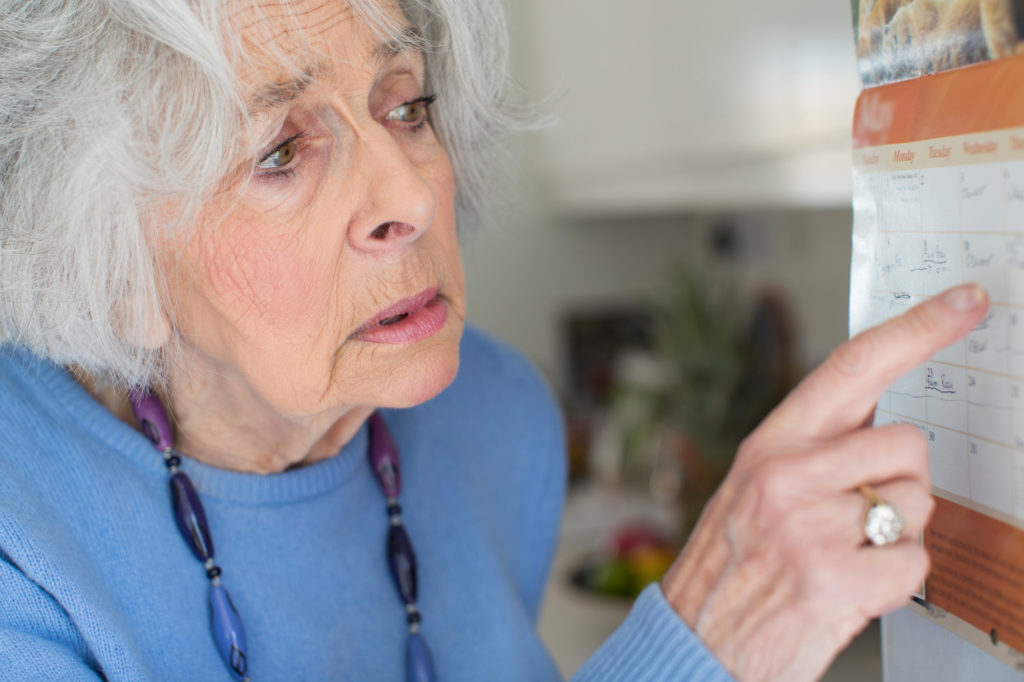
Reports show there is a new case of dementia every 4 seconds. There will be more than 75 million cases by the year 2030.
For those with the diagnosis, the struggle with memory and communication is frightening. Sometimes, they will work at trying to hide the symptoms. It can seem they become a different person as they isolate more.
Though symptoms in each person may vary, they get worse over time. Dementia is not a disease but presents as a result of a disease.
Most often the cause is Alzheimer’s (60% of cases), but it also shows with Parkinson’s and Huntington’s. Many caring for a loved one in dementia stages need help understanding it.
Knowing the stages makes it easier to know what to expect. For sufferers, an understanding caregiver offers the respect they deserve.
Read on to learn everything you need to know about the seven dementia stages.
Two Categories of Dementia Stages
The outer layer of the brain, the cortex, holds the key to memory and language. When this layer begins to decline, Cortical Dementias is the result. This is the category of dementia for people living with Alzheimer.
Both language and memory will decrease until communication is impossible. Seasons Memory Care offers specific information on the effects of Alzheimer.
Those who suffer dementia due to Parkinson’s, Huntington’s, or HIV, have Subcortical Dementias.
These patients brain is misfiring below the cortex. They have issues with a slowing thought process, but not with language or memory.
The Major Causes of Dementia
Most cases of dementia are a result of neurological disease. But, there are few other causes:
- Vascular Diseases Causing Lack of Blood Flow to the Brain
- Traumatic Brain Injury
- Central Nervous System Infection Such as Meningitis or HIV
- Long-Time Drug or Alcohol Abuse
- Build Up of Fluid on the Brain
Dementia is treatable. Experts say 20% of cases are reversible by eliminating the cause. If this is not possible, worsening symptoms may slow with therapy and medication.
The Seven Stages of Dementia
The scales for dementia come from the Global Deterioration Scale (GDS). These measures for cognitive decline are most relevant for people living with Alzheimer’s.
Stage 1-No Decline
This stage includes those with normal function and no memory loss present.
Stage 2-Very Mild Decline
Most people at this stage will not show obvious signs of cognitive loss. They misplace familiar items, forget names, or have difficulty recalling words when communicating.
Loved ones and physicians may not detect signs. We often associate this behavior with older people.
Stage 3-Mild Decline
The decline at this stage will become more obvious to loved ones and physicians. Sufferers will show lower productivity at work and have a hard time concentrating.
They may get lost on occasion and need more effort to communicate the right words. The average length of this stage before the onset of dementia is seven years.
Stage 4-Moderate Decline
This stage’s impairment may cause avoidance of socializing or travel to different places. Complex tasks such as finances become too complicated. The ability to remember recent events declines.
It’s very common for people to be in denial about their symptoms. This stage is more evident to family members, and a physician can detect it with an interview and exam. The average length of this stage is two years.
Stage 5-Severe to Moderate Decline
During this time, help will be necessary for daily activities. Most cannot bathe, dress, or prepare food each day.
They’ll not know important information such as their address, the date, or where they are. The duration of this stage averages 1 1/2 years.
Stage 6-Severe Decline
Experts refer to this stage as mid-dementia. Sufferers need full-time help for daily needs. Many will start to have loss of bowel and bladder control, but few other physical symptoms.
Forgetting family’s names, parts of the past, and recent events are common. The speech will begin to decline, and notable personality changes may occur.
In some cases, delusions, compulsive behavior, anxiety, and agitation is present. The stage often lasts 2 1/2 years.
Stage 7-Very Severe Decline
Very severe is the late dementia state. Many people will lose some psychomotor abilities such as walking.
They will also lose the ability to speak or communicate and will need help in all daily activities. This late stage can last 2 1/2 years.
Caring for Loved Ones in Dementia Stages
When dealing with a loved one who’s experiencing dementia, there are some simple rules. Stages change, so what works today may not work tomorrow.
Here are a few simple ways to help both you both:
- Don’t dismiss their emotions
- Support their independence
- Try to understand behavior-don’t confront it
- Keep their surroundings constant and familiar
- Fear can manifest as anger-reassure them
- Hugs and gentle touch nurture secure feelings
- Speak in simple terms
- Maintain a daily schedule of meals, hygiene, and exercise
- Caregiving is hard work-have a support system
If your loved one presents with troubling physical symptoms, check with their physician. Often, there are medications which can help.
Dementia often causes sufferers to become paranoid or depressed. Medications can help with this, too.
It’s vital for anyone to stay as independent as possible. But, the time will come that dementia patients need full-time care.
The decisions we make for loved ones are not easy. Talk with doctors, family members, and other caregivers.
If it’s necessary to find a care facility, choose one with long-term options. Knowing your loved one is safe as they progress through the different dementia stages is most important.
Check out more health and wellness tips on our blog!

